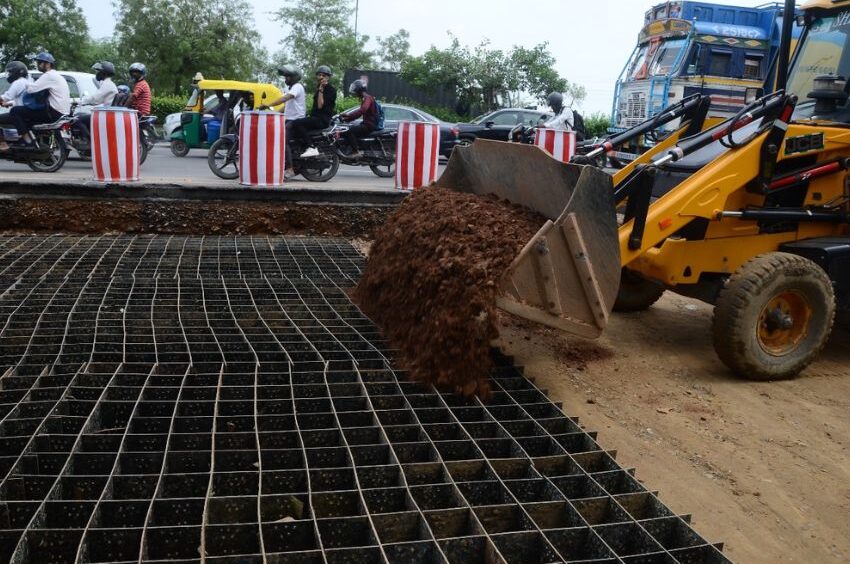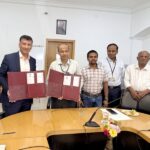BPCL’s Geocell Tech Turns Plastic Waste Into Roads, Signals Game Changer For Infrastructure Sustainability

India’s first expressway trial using multi-layered waste plastics marks shift toward circular road construction
In a development that could reshape how India manages its plastic waste, Bharat Petroleum Corporation (BPCL) has started a pioneering Geocell technology that repurposes mixed and end-of-life plastic waste for use in road construction.
The innovation—developed by BPCL’s Corporate R&D Centre in collaboration with the Central Road Research Institute (CRRI), New Delhi – was field-tested on 11 July 2025, at Loop No.1 of the elevated DND–Faridabad–KMP Expressway, marking India’s first trial of its kind using technical textiles made from multi-layered plastic (MLP) waste.
The initiative is the latest in BPCL’s sustainability portfolio and builds upon its earlier Waste Plastic Module, which has already consumed over 250 metric tonnes of plastic waste across Indian states. With Geocell, BPCL aims to solve a more complex problem: non-segregated, multi-layered municipal plastic waste—one of the most difficult forms of plastic to recycle.
The pilot was executed in partnership with TATA Projects and backed by the National Highways Authority of India (NHAI), demonstrating the viability of plastic-derived Geocells for improving pavement stability and load distribution.
“This trial section, utilizing end-of-life waste plastic, is a collaborative effort between BPCL and CRRI. Upon successful validation, this approach may lead to increased application of waste plastic in the future,” said Chandrasekhar N., Head of R&D at BPCL, during the inauguration.
The 1,280 square metre demonstration used between 20 to 25 tonne of waste plastic, deployed as both Modules and Geocells, to reinforce the expressway’s structural layers. Unlike conventional recycled plastic applications, Geocells allow for the inclusion of MLPs, which are currently excluded from Indian Roads Congress (IRC) specifications.
This opens the door to wider plastic integration in infrastructure and contributes directly to India’s climate and waste management goals under the Swachh Bharat Abhiyaan and Net Zero commitments.
The Geocell field trial follows successful plant trials, reinforcing the economic and technical viability of reusing complex plastic waste in civil engineering. Designed as a technical textile, Geocells enhance both durability and load-bearing efficiency in pavements, offering long-term performance benefits for highway and road infrastructure.
As India faces dual crises of plastic waste overload and infrastructure stress, BPCL’s Geocell innovation presents a scalable circular economy model that integrates environmental responsibility with national development goals.
If formally validated and adopted into national road-building norms, the use of Geocells made from MLP waste could become a cornerstone of green infrastructure policy, offering a solution to one of the most stubborn forms of plastic pollution.
With this bold step from lab to expressway, BPCL reaffirms its position as a climate-forward public sector leader—one that’s not just managing waste, but transforming it into nation-building material.





































































































































































































































































































































































































































































































































































































































































































































































































































































































































































































































































































































































































